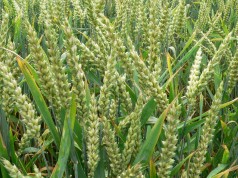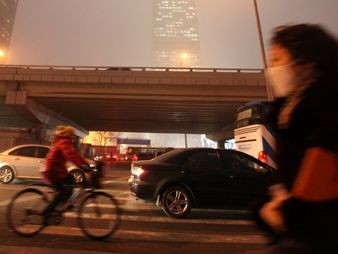“In the EU, we have set ourselves a target to halve edible food waste by 2020 and to virtually eliminate landfilling by 2020; the Commission is planning to present ideas next year on the sustainability of the food system which will have a strong focus on food waste,” said Janez Potocnik, European Commissioner for the Environment.
“Less food waste would lead to more-efficient land use, better water resource management, more sustainable use of phosphorus, and it would have positive repercussions on climate change. Our work fits perfectly with the launch of this initiative,” he added.
For the campaign to reach its huge potential, everyone has to be involved – families, supermarkets, hotel chains, schools, sports and social clubs, company CEOs, city Mayors, national and world leaders.
The campaign website, www.thinkeatsave.org, provides simple tips to consumers and retailers, will allow users to make food waste pledges, and provides a platform for those running campaigns to exchange ideas and create a truly global culture of sustainable consumption of food.
For example, the website provides the following advice, which will help consumers, retailers and the hospitality industry reduce waste; thus, reducing their environmental impact and saving money.
 Consumers
Consumers
- Shop Smart: Plan meals, use shopping lists, avoid impulse buys and don’t succumb to marketing tricks that lead you to buy more food than you need.
- Buy Funny Fruit: Many fruits and vegetables are thrown out because their size, shape, or colour are deemed not “right”. Buying these perfectly good fruit, at the farmer’s market or elsewhere, utilizes food that might otherwise go to waste.
- Understand Expiry Dates: “Best-before” dates are generally manufacturer suggestions for peak quality. Most foods can be safely consumed well after these dates. The important date is “use by” – eat food by that date or check if you can freeze it.
- Zero Down Your Fridge: Websites such as WRAP’s www.lovefoodhatewaste.com can help consumers get creative with recipes to use up anything that might go bad soon.
- Other Actions: Include freezing food; following storage guidance to keep food at its best, requesting smaller portions at restaurants; eating leftovers – whether home-cooked, from restaurants or takeaway; composting food; and donating spare food to local food banks, soup kitchens, pantries, and shelters.
Retailers and the Hospitality Industry
- Retailers can carry out waste audits and product loss analysis for high-waste areas, work with their suppliers to reduce waste, offer discounts for near-expiration items, redesign product displays with less excess, standardize labelling and increase food donations, among other actions.
- Restaurants, pubs and hotels can limit menu choices and introduce flexible portioning, carry out waste audits and create staff engagement programmes, among many other measures.
- Supermarkets, hotels, restaurants, companies, cities and countries will be able to use the website to pledge to measure the food they waste and put in place targets to reduce it.
Source: UNEP.
Notes:
Food Loss refers to food that gets spilled, spoilt or otherwise lost, or incurs reduction of quality and value, before it reaches its final product stage. Food loss typically takes place at production, post-harvest, processing and distribution stages in the food supply chain.
Food Waste refers to food that completes the food supply chain up to a final product, of good quality and fit for consumption, but still doesn’t get consumed because it is discarded, whether or not after it is left to spoil. Food waste typically, but not exclusively, takes place at retail and consumption stages in the food supply chain.
SAVE FOOD Initiative
SAVE FOOD the Global Initiative on Food Losses and Food Waste Reduction is a partnership between companies and organizations worldwide to reduce the estimated 1.3 billion tonnes of food that is lost or wasted every year.
WRAP
Wrap is a non-profit organization funded by all four UK governments and the EU, and aims to help people recycle more and waste less
Feeding the 5,000
Feeding the 5,000 organizes events where meals made from food that would otherwise have been thrown out are distributed free.














